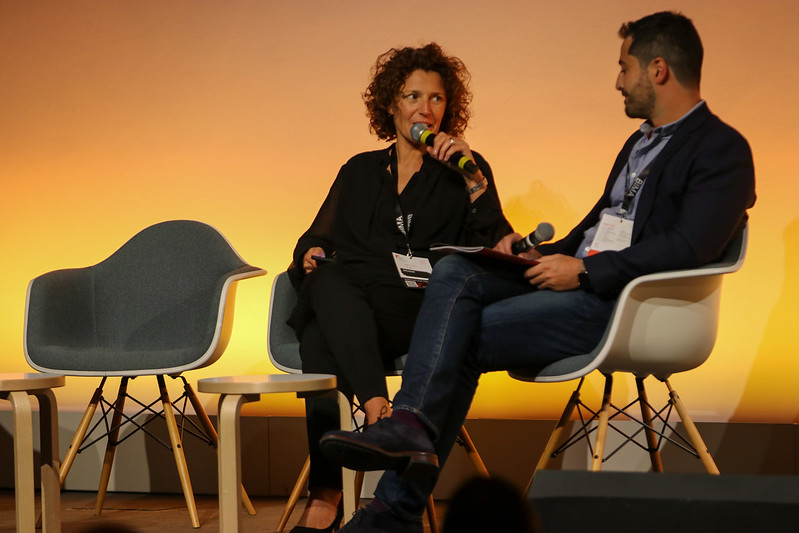 Nat Gross and Tarek Nseir, BIMA Co-presidents
Nat Gross and Tarek Nseir, BIMA Co-presidents
We hoped delegates at the first BIMA Conference to leave with greater insight into the next wave of technology. What we couldn’t have expected was the sheer power and passion that emerged from the day’s themes. BIMA Co-President Natalie Gross reflects on a Conference which left us with a greater sense of our impact on society, a sense of urgency to use tech for good, and a deep desire to act.
Following a day when the UN assembly and leaders around the globe were subjected to a scorching, emotional speech by climate activist Greta Thunberg, the topics of BIMA’s first conference, Lessons from the Future, take on even more urgency.
The conference saw 300 tech and digital specialists, students, and educators searching for answers to the big questions that our industry is facing and must urgently address. And it’s action that is required, not platitudes. This is not only because of the combined voices of Greta Thunberg and the estimated four million who joined her in the recent climate strike. It’s also because, unlike 20, or even 10 years ago, technology is more pervasive, omnipresent and more deeply integrated into our lives than anything we’ve ever experienced before. We cannot separate the conversations anymore. We need to bring this new sense of activism and positivity into the boardroom and find the examples that already exist out there to prove the value of finding new ways of working.
We stand on the precipice of change from the tech we’ve been using since the 1990s to the tech we are about to have all around us. In the past, our interactions with tech have been deliberate – you’ve had to make the choice to pick up a device and search, click or buy. Not anymore. Topics at the BIMA conference were wide ranging, but no one was talking about apps, websites or mobile. We explored the impact of voice, mixed reality and AI. We’ve moved from ‘dumb tech’ that waits for a command, to smart tech, that learns and presents us with new realities.
We must take responsibility as practitioners. We have been sitting in our Silicon Valleys, Roundabouts and Islands with our heads down, focused on making ourselves and our clients more profitable. This relentless forward momentum doesn’t leave much room for the bigger picture. We need to apply our brains to understand the impact of what we’re unleashing on the world. The transition of new tech from the R&D team to mainstream implementation is only going to happen more quickly, and I’m not convinced most companies are ready for it.
By this time next year, voice technology and mixed reality will have moved on and so will our attitudes. If this year, 60% of the content was focused on technologies and 40% was around the impact of those technologies and the companies we’re creating around them, I expect to see that ratio flip. For business owners, if you’re not thinking about how these immersive and intelligent technologies affect what you do, you’re already falling behind. It’s as much about what we’re producing, as how we’re working, because we must work differently to change our current trajectory.
We’re still running our businesses the way they’ve been run for decades, with shareholder value remaining the number one priority. Meanwhile, courses are bubbling up in university looking at the intersection of culture, philosophy and technology, creating a new generation of technologists who’ve got the time to learn from our mistakes and apply critical thinking to our behaviour as an industry.
We may have been part of creating an almighty, beautiful and complicated mess for the world but we can do our part to fix it by questioning entrepreneurial models, creating new kinds of ownership, and new tools that allow us to better collaborate across different communities. The time is now for us to grow up as an industry – before the time runs out.
Missed BIMA Conference? Look out for content from each of the sessions over the next few weeks but in the meantime check out our video highlights here.
Register your interest for 2020.